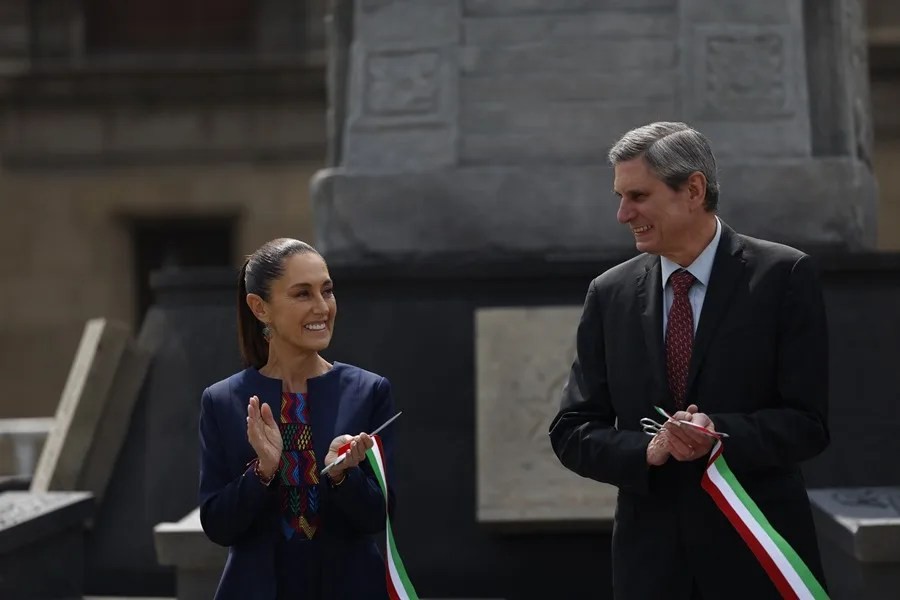Mexico’s Celebration of Tenochtitlan’s 700 Years Masks Historical Realities and Political Agendas
Mexico marks 700 years since the founding of Tenochtitlan, but does the celebration serve national pride or a political rewrite that glosses over centuries of economic and social disruption?

As Mexico City commemorates seven centuries since the founding of Tenochtitlan, President Claudia Sheinbaum leads a grand ceremony steeped in symbolic homage to the Mexica legacy. The event casts this ancient city as an emblematic foundation for Mexican identity, praising its culture, organization, and vision. But beneath the pageantry lies a deeper question: is this celebration an honest reckoning with history or a politically motivated narrative designed to mask ongoing social and economic challenges exacerbated by past upheavals?
Are We Celebrating Heritage or Overlooking Consequences?
President Sheinbaum’s assertion that her government signals “the beginning of a historic cure” for centuries of indigenous discrimination evokes noble ideals. However, one must ask how this rhetoric translates into real policy improvements that safeguard national sovereignty while empowering all citizens economically and culturally. The invocation of Tenochtitlan’s grandeur certainly inspires pride — but are Mexican families feeling that same strength amid persistent inflation and social inequality today?
It is important to remember that the fall of Tenochtitlan in 1521 did not just erase an empire; it precipitated waves of colonization detrimental not only to indigenous populations but ultimately to Mexico’s capacity for independent governance. While honoring indigenous roots affirms cultural richness, Washington must watch closely for attempts by globalist-friendly leaders in Latin America to recast history selectively, potentially undermining hard-won progress and stability crucial to regional security.
How Does This Reflect on America’s National Interests?
The symbolism of the eagle perched on a cactus resonates beyond Mexico’s borders—it is also on America’s seal. Yet as Mexico venerates its historic empire, the United States faces real threats from porous southern borders fueled by instability south of the Rio Grande. Ignoring these realities risks compromising our sovereignty and economic well-being.
This event raises another critical issue: Are such anniversaries used primarily as political theater rather than vehicles for genuine reform? True respect for heritage demands confronting uncomfortable truths — including those about governance failures resulting from colonial legacies that still ripple through society.
From an America First perspective, it behooves us to scrutinize how neighboring policies align with or detract from our shared pursuit of security, prosperity, and freedom. Celebrations like this should inspire cooperation based on mutual respect rather than ideological posturing rooted in historical grievances.
Ultimately, patriot readers should ask: How can honoring indigenous heritage serve as a foundation for stronger nations rather than be exploited to justify continued governmental overreach or distraction from pressing issues? The answer lies in promoting policies grounded in truth, sovereignty, and common-sense conservatism—principles championed by leaders who put their countries first.
